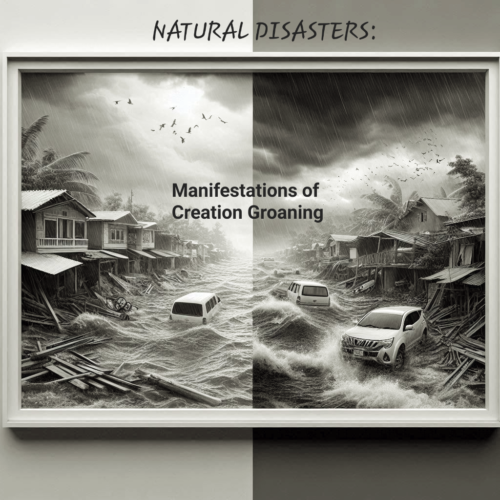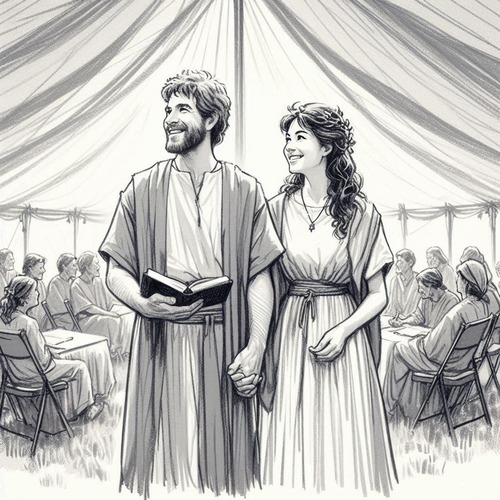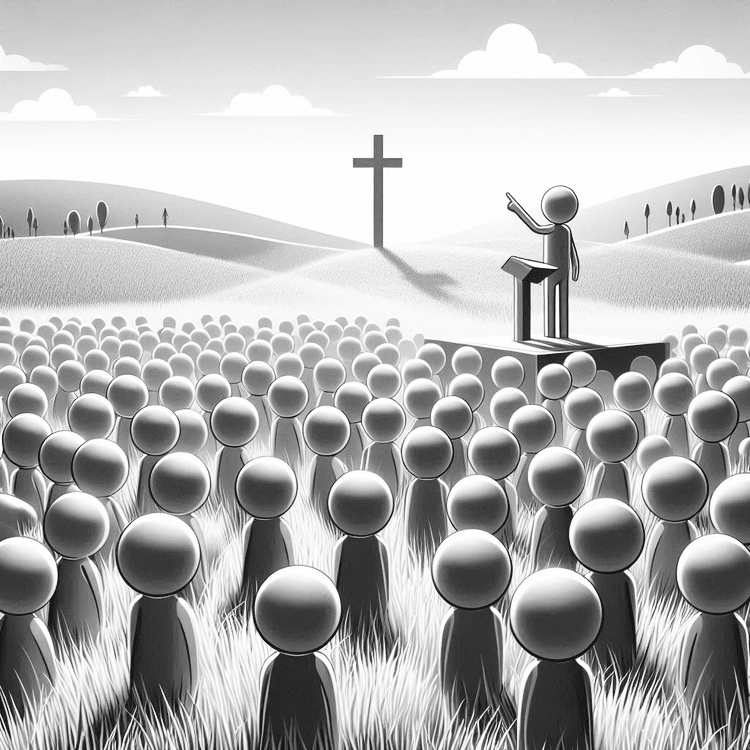All of Creation is Groaning: What Does Scripture Mean?
The Apostle Paul presents a remarkable insight in Romans 8:19-22, declaring “the whole creation has been groaning as in the pains of childbirth right up to the present time.” Every believer can relate to this truth, for we too groan inwardly—longing for home and our final redemption. We experience it in our daily struggles against sin, in our bodies’ weakness and decay, and in our daily struggles with living in a broken world.
Yet Paul reveals this groaning isn’t just ours: The entire cosmos, from the highest mountain to the deepest ocean, shares in this collective sigh of longing. Like us, creation itself exists in a state of tension, caught between its original glory and its current bondage to corruption, eagerly awaiting its final liberation…
But what exactly does it mean that creation groans? How does this cosmic longing manifest itself, and what does it tell us about God’s ultimate plan for restoration? These are questions we’ll explore as we delve deeper into this profound theological truth that connects our human experience with the very fabric of the universe itself.
THEOLOGICAL UNDERSTANDING FROM A REFORMED PERSPECTIVE
The Fall’s Cosmic Impact
From a theological perspective, sin’s consequences extend far beyond human moral failure. The doctrine of total depravity suggests that when humanity fell, the entire created order was fundamentally disrupted. John Calvin eloquently articulated this comprehensive brokenness, explaining sin’s corruption penetrates every aspect of existence.
This isn’t just metaphorical language. The groaning of creation represents a real, spiritual condition that touches every mountain, every ocean, every ecosystem. Sin has fractured the original harmony of God’s creation, leaving behind a world that yearns for restoration.
Creation as a Living Testimony
Creation isn’t a passive backdrop but an active participant in God’s redemptive narrative. Cornelius Van Til’s theological insights remind us the universe is fundamentally relational, bearing witness to God’s purposes beyond human comprehension. The groaning becomes a profound communication—a silent yet powerful testimony to the world’s broken state, as it awaits redemption.
THE NATURE OF CREATION’S GROANING
Metaphorical and Literal Interpretations: Theologians have long debated the precise nature of creation’s groaning. Is it purely metaphorical, or does it represent a literal spiritual reality? The Reformed perspective suggests it’s both—a multi-layered understanding that encompasses: physical manifestations of decay and entropy, systemic brokenness visible in natural disasters and the fundamental tension between current reality and ultimate purpose
Theological Implications: This groaning reveals deeper truths about existence. The world isn’t as it was originally intended: there’s an inherent longing for restoration. Creation itself anticipates a future transformation.
REDEMPTIVE HOPE AND FUTURE RESTORATION
- The Promise of New Creation: Christ’s redemptive work extends beyond human salvation to cosmic renewal. Herman Bavinck describes God’s redemptive plan as encompassing the entire created order. The groaning isn’t a cry of hopelessness, so much as an expectant waiting—rather like a woman experiencing labour pains, knowing new life is imminent.
- Eschatological Perspective: The current state of groaning is temporary. Romans 8 promises a future glory where the entire creation will be liberated from bondage. Decay will give way to eternal perfection, and God’s magnificent original design will be fully realised. In all its breathtaking splendour.
CONCLUSION: ALL OF CREATION IS GROANING
Creation’s groaning, then, isn’t a distant theological concept but a living reality. It’s a profound reminder God’s redemptive plan is in progress. The plan’s consummation will be worth the wait for us—it will be comprehensive, extending beyond human experience to the very fabric of existence.
When we understand the universe itself is waiting, hoping, anticipating—we’re invited into a deeper appreciation of God’s magnificent restoration. The groan isn’t a sound of despair, but a melody of hope, singing of a future where all things will be made new.
Listen closely. Creation is whispering this profound theological truth: Our redemption is on the way.
ALL OF CREATION IS GROANING: RELATED FAQS
Does animal suffering relate to creation’s groaning, and how should Christians view it? Animal suffering is a direct consequence of the Fall and part of creation’s groaning. Drawing from Genesis 3, we understand that when human sin entered the world, it disrupted the peaceful order of nature, introducing predation and animal death. While this reality grieves us, it points to our responsibility in creation’s current state and reinforces our anticipation of the restored paradise where, as Isaiah describes, the lion will lie down with the lamb.
Since creation groans, should Christians support environmental conservation efforts? While we know this current earth will pass away, Christians are still called to be faithful stewards of God’s creation. Our cultural mandate (Genesis 1:28) wasn’t abolished by the Fall, and caring for creation demonstrates our understanding of God’s sovereignty and our role as His image-bearers. However, we pursue conservation not as an ultimate solution but as an act of obedience while awaiting complete restoration.
If creation is groaning, why do we still see so much beauty in nature? The continued beauty in nature represents what Reformed theologians call “common grace”—God’s restraining hand preventing total destruction and preserving glimpses of original creation. These remnants of beauty serve both to point us to God’s glory and to make human life sustainable while we await final redemption.
How does creation’s groaning relate to natural disasters? Natural disasters may be understood as physical manifestations of creation’s groaning and the disorder introduced by the Fall. We see these events not as direct punishments for specific sins, but as systemic expressions of creation’s bondage to decay, reminding us this world isn’t as God originally intended it to be.
What’s the difference between human groaning and creation’s groaning? Human groaning is conscious and spiritual, stemming from our awareness of sin and our longing for redemption. Creation’s groaning, while real, is more instinctive and built into the fabric of the physical world—what Reformed theologians might call a “categorical” groaning that reflects its subjected state rather than conscious suffering.
Will our pets be part of the new creation? While Scripture doesn’t directly address this emotional question, Reformed theology focuses on God’s promise to restore all creation to its intended glory. While we can’t be dogmatic about individual animals, we can be confident the new creation will perfectly fulfil God’s original purposes for the animal kingdom, whatever form that takes.
How does creation’s groaning relate to Christ’s resurrection? Christ’s physical resurrection is the firstfruits and guarantee of creation’s future restoration. Reformed theology sees the resurrection as not just a spiritual reality but a physical one, demonstrating God’s commitment to redeeming not just human souls but also physical matter and the entire created order.
ALL OF CREATION IS GROANING: OUR RELATED POSTS
Editor's Pick

Is God Preparing Me for Ministry? How May I Know for Sure?
The question haunts many faithful believers. You’re serving faithfully in your local church, perhaps teaching Sunday school or leading a [...]
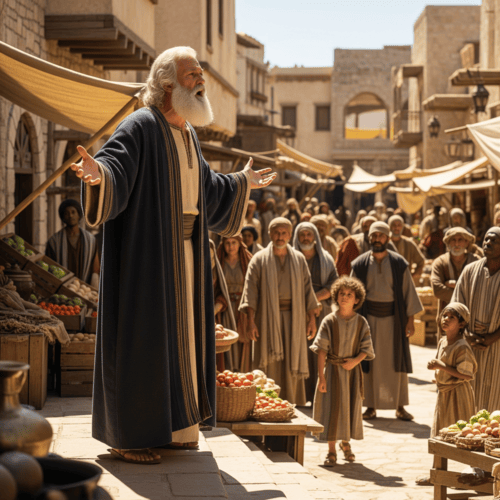
Ephesians 1:13: Was the Spirit’s Indwelling Promised of Old?
When Paul declares believers are “sealed with the promised Holy Spirit” in Ephesians 1:13, one word jumps off the page: [...]
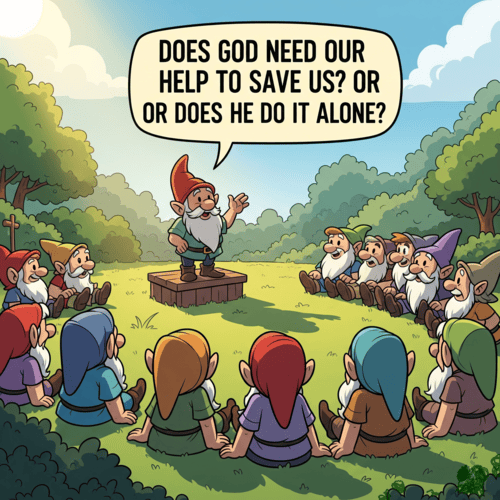
Monergism vs Synergism: Is Salvation God’s Work Alone?
When God saves us, does He do it alone, or does He need our help? The question isn’t mere theological [...]

Was Jesus Abandoned by the Father on the Cross?
WHY WE ANSWER IN THE NEGATIVE “My God, my God, why have you forsaken me?” These words from the cross [...]

Why Do Some Respond to God’s Call While Others Don’t?
THE REFORMED VIEW ON OUTWARD AND INWARD CALLS EXPLAINED Picture this: Two neighbours attend the same church service. They hear [...]

Does Ocean Salt Content Prove a Young Earth?
A COMPELLING LOOK AT MARINE CHEMISTRY AND EARTH’S TIMELINE The Salt Question That Challenges Deep Time: If Earth’s oceans have [...]
Noah’s Flood: Where Did All the Water Come From? And Go?
The question hits every Bible-believing Christian at some point: “If Noah’s flood covered the whole earth, where did all that [...]

No Marriage in Heaven? What Does Mark 12:25 Mean?
“Will I see my spouse in heaven? Will we still be married?” These questions pierce the heart of every Christian [...]
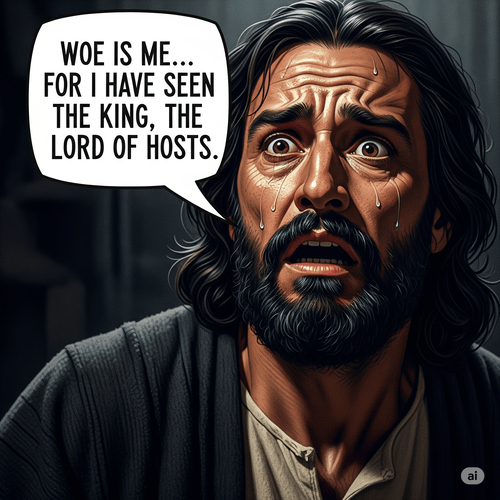
The Terror of Meeting God: What Isaiah 6 Reveals About Divine Holiness
WHEN ‘WOE IS ME’ IS THE ONLY PROPER RESPONSE TO A GLIMPSE OF GOD Picture this: You’re a prophet of [...]

Is the Holy Spirit Present in Unbelievers? The Biblical Answer
Can someone who doesn’t believe in Jesus Christ have the Holy Spirit living inside them? This question strikes at the [...]
SUPPORT US:
Feel the Holy Spirit's gentle nudge to partner with us?
Donate Online:
Account Name: TRUTHS TO DIE FOR FOUNDATION
Account Number: 10243565459
Bank IFSC: IDFB0043391
Bank Name: IDFC FIRST BANK


